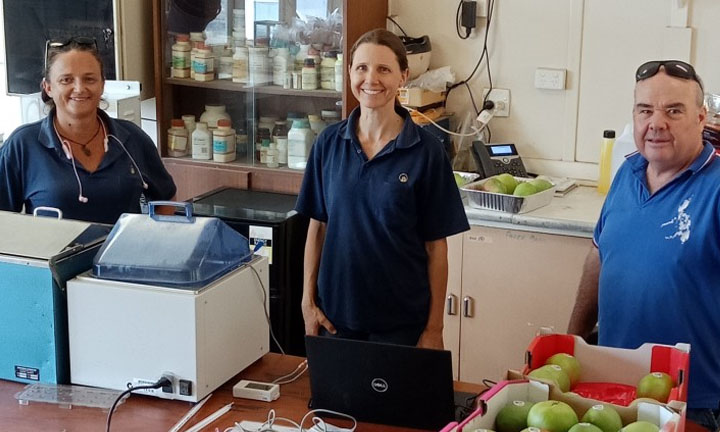While hot water treatment is used extensively to disinfest other fruit and vegetables, its application on mangoes has been hindered by scalding to the skin – compromising fruit quality and value.
The research by the Department of Primary Industries and Regional Development (DPIRD) found two varieties of mangoes responded well to the hot water treatment, without scalding, when the fruit was preconditioned to ambient shed temperatures.
Two years of trials were undertaken at DPIRD’s Frank Wise Agricultural Research Institute at Kununurra, as part of a Commonwealth Australian Centre for International Agricultural Research (ACIAR) project, in collaboration with Griffith University, Queensland.
DPIRD research scientist Tara Slaven said two mango varieties, the well known export mango R2E2 and a new yet to be named line NMBP-4069, responded well to preconditioning treatments producing no scald damage.
“The trial has shown that preconditioning these mango varieties at ambient Kimberley temperatures could be a useful, cost effective, efficient system to disinfest mangoes without scalding the skin,” Ms Slaven said.
Griffith University senior horticulturalist Peter Johnson said the outcomes from hot water treatment trial could generate far reaching benefits to mango growers around the world.
“This comparatively simple treatment makes disinfestation accessible to mango growers in countries that cannot afford typical treatments, which could help improve fruit quality and profitability,” Mr Johnson said.

